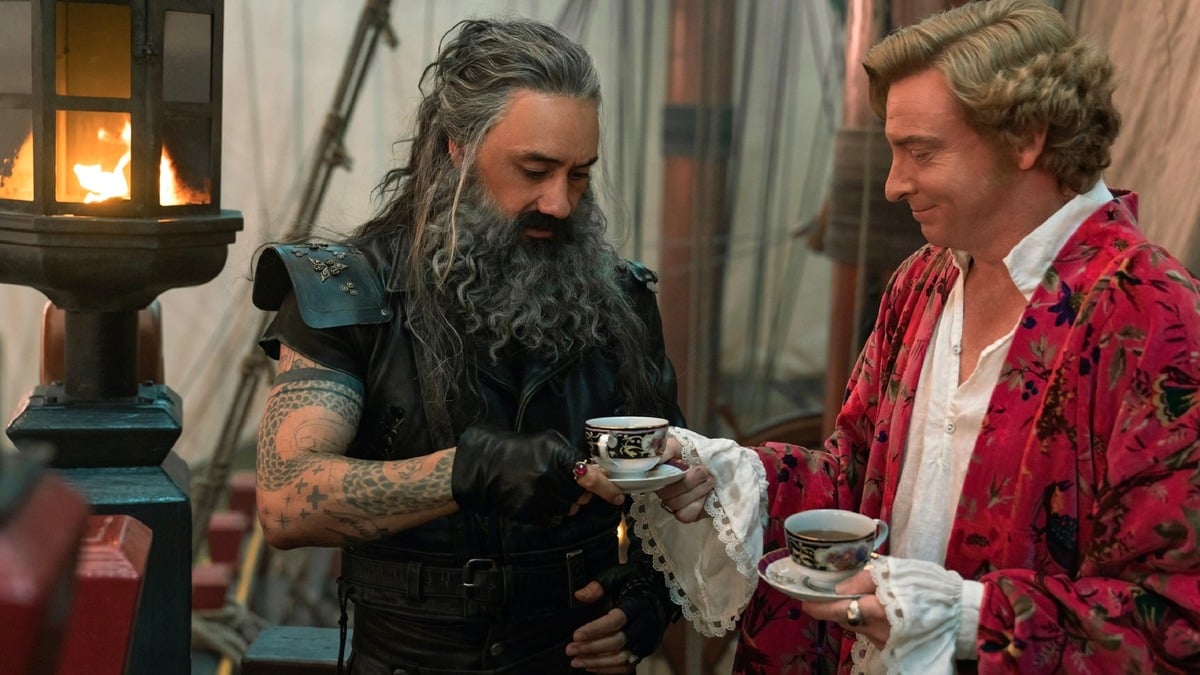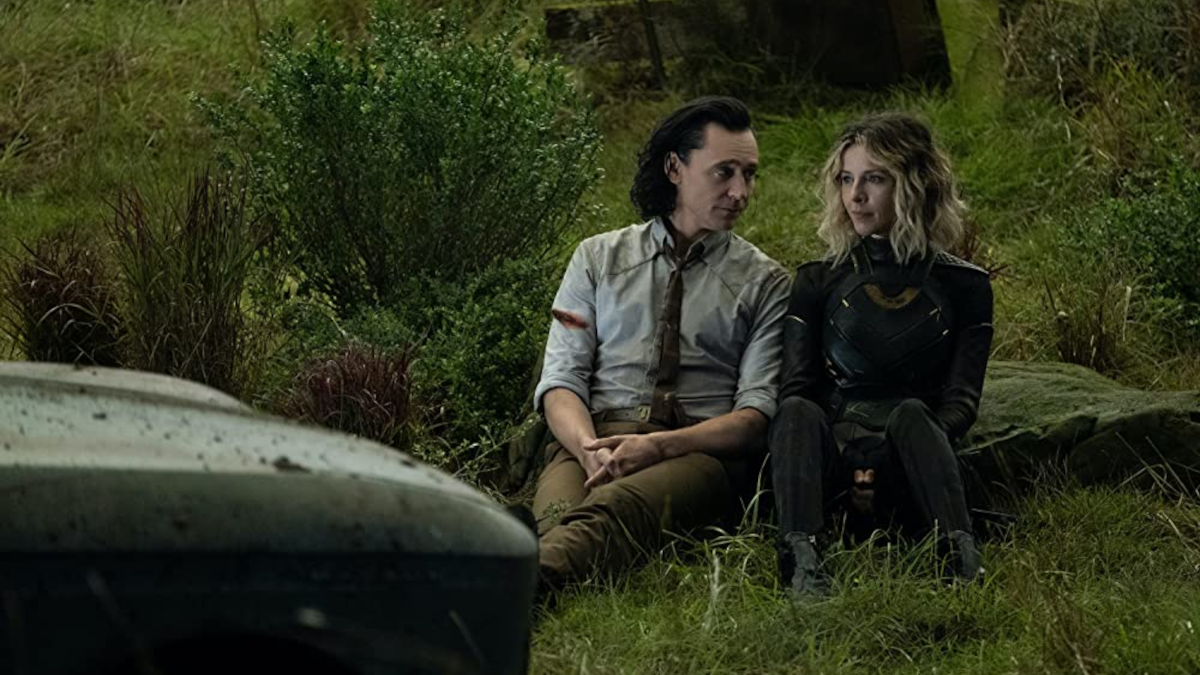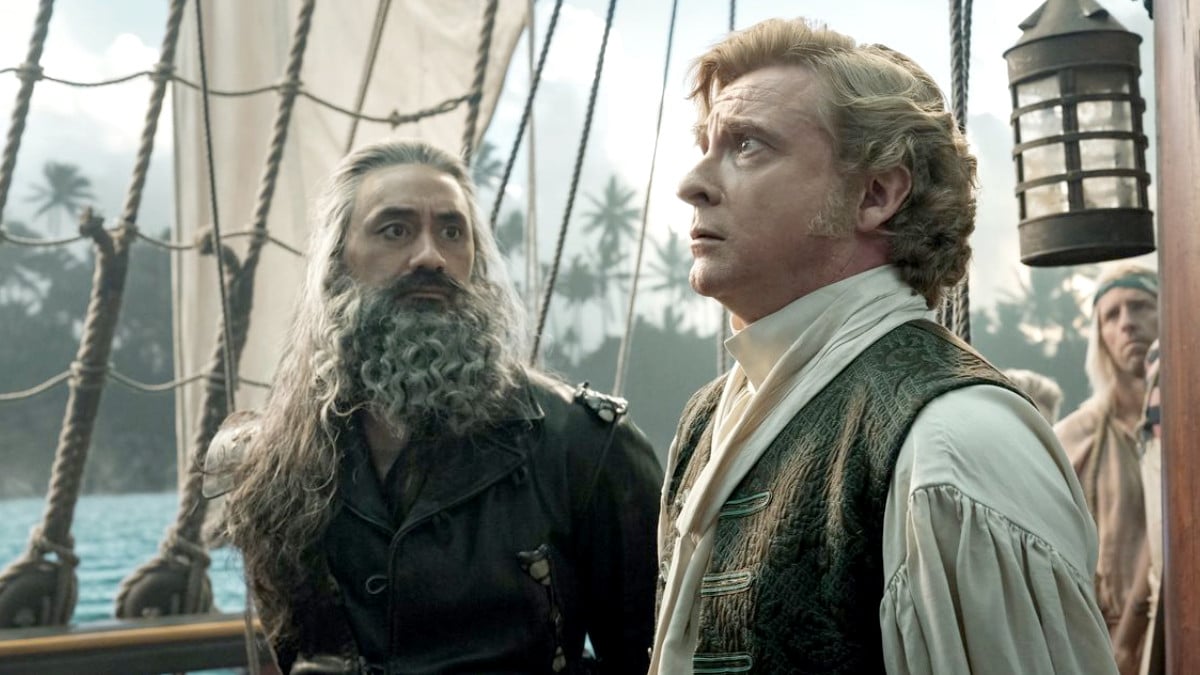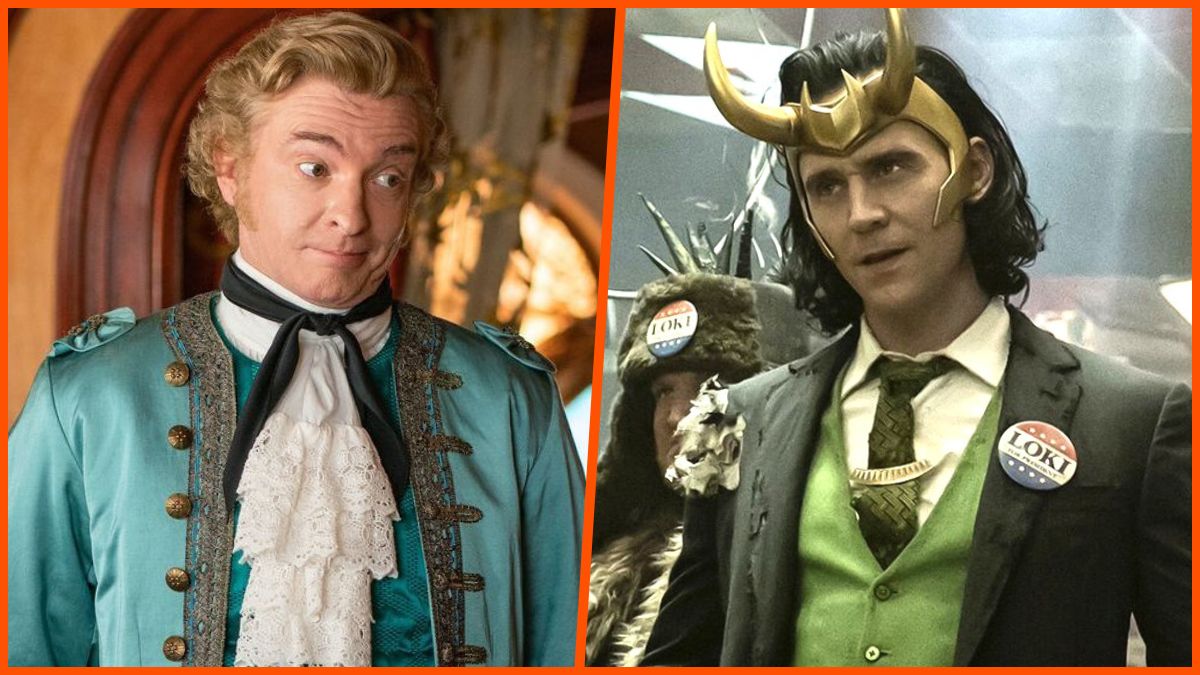On a surface level, Loki and Our Flag Means Death appear to have absolutely nothing in common. And that’s mostly true; one follows a God’s misadventures through time and space, while the other focuses on a rich landowner who upends his entire life to become a pirate. The setting, tone, and plot of these shows couldn’t be more different, but there are a couple of things uniting them. Just by reading the headline of this article, you can guess that the debut date for their second season is one of them, but not all.
Our Flag Means Death and Loki both have queer main characters — Stede and Loki — who meet someone in the first season and promptly fall in love with them. That’s it. That’s where the resemblance stops. Did you expect more? Well, so did I, as did many other fans when we saw the God of Mischief talk about his queerness on screen for the very first time in the entire MCU. It’s a tricky thing, expectation. It raises our hopes, even without us wanting it to, setting us up for disappointment when reality comes crashing down.
“Maybe this time will be different,” we think, time and again, waiting for Marvel to one day provide superhero fans with meaningful representation. And each time, we’re left a little more disappointed, a little more discouraged. And so we look for other types of content. Content that follows through on its promises and carefully handles LGBTQ+ characters by giving them the freedom to act upon their attractions on screen. That’s Our Flag Means Death.
Loki vs. Our Flag Means Death: an analysis of queer representation

The pirate rom-com doesn’t align with everyone’s tastes, no show does, but when it comes to queer representation, it puts a lot of other series to shame. Granted, at first, we were all more than a little skeptical that OFMD would pull it off. Years of being queerbaited by mainstream media will do that to a person. So, it was incredibly refreshing to see this show’s writers pull the trigger on the blossoming romance between Stede and Ed before season one was even over, instead of stringing its queer audience along with a tired will-they-won’t-they trope. They will. They did. And here lies the fundamental contrast between OFMD and Loki.
This is in no way meant to dismiss Loki’s queerness or to erase it because he happened to fall in love with a female version of himself. Putting the weirdness of that concept aside, Loki’s identity is an important part of the character, and to acknowledge it on screen was a step in the right direction for Marvel. But to have Loki and Sylvie get romantically entangled right after they’re allowed to speak about their attractions to multiple genders does leave a sour taste in my mouth.
If these were real-life people, their feelings would never even be brought into question, but it’s fictional characters we’re talking about. Their lives, thoughts, and emotions are the direct result of a writer’s room’s decisions. So, while no one can say for sure what the writers’ intentions were, it certainly feels like Marvel was trying to compensate for Sylvie and Loki’s sexualities by putting them together. But then again, Loki is only one more entry on the list of Marvel’s weak attempts at representation.
What does this mean for season 2 of these shows?

It may be a bit late to bring this up — typically, you explain what inspired you to write something at the beginning of an article — but bear with me. Recently, a poll created by The Streamr requested that Twitter/X users vote on which season 2 premiere they’re most looking forward to: Loki or OFMD. With a sample size of 18 485 people, David Jenkins’ show won by a landslide, showing that 92 percent of fans much prefer the rom-com. Naturally, as a fan of both series, this result got me thinking.
Could the stark contrast between the two shows in terms of LGBTQ+ representation have anything to do with it? I can’t really say. There are many factors that contribute to specific outcomes, and Twitter/X is in no way a reliable platform to conduct scientific experiments. We have no idea how many Marvel fans this poll reached, and no demographic details to aid in interpreting its result. Thus, it’s not fair to conclude that LGBTQ+ representation is the reason for this disparity.
Much has been said about superhero fatigue lately, and while some still debate whether or not it is real, it’d be foolish not to consider its potential impact on this poll’s outcome. There’s a strong chance that folks are simply tired of superhero stories, especially when there’s so many per year. Marvel, in particular, is guilty of constantly pumping out content, be it in movie or TV show format. (I get it, superheroes sell.)
At the same time, though, I can’t help but notice how much more OFMD resonates with queer audiences, despite the fact that Loki also has a queer person as its protagonist. So, is it crazy to consider that Marvel is missing out on something great by refusing to include meaningful and complex queer representation in its content? I don’t think so. And while the poll in question may not accurately reflect the viewership numbers of both shows’ second seasons — as we won’t know them until they’re released — there’s no doubt that Marvel could learn a thing or two from the people behind shows such as OFMD.
Marvel, it’s not too late

As any Marvel aficionado must be aware, Agatha: Darkhold Diaries is shaping up to be an LGBTQ+ favorite. Will it follow through with that idea? It’s too soon to tell, but with the approaching assembly of the Young Avengers team (and the necessity of laying down the groundwork for it), there is reason to hope. And if the entertainment company follows in the footsteps of OFMD, it stands to gain a lot.
I believe that the biggest problem with Marvel’s LGBTQ+ representation is that it tries to appease everyone. Its thinly veiled attempts to present queerness in a way that’s palatable to broader audiences isn’t lost on anyone, despite what studio execs may like to believe. The representation is there, sure, but for the time being, just in blink-and-you’ll-miss-it moments and fleeting comments.
What the industry giant fails to realize, though, is that LGBTQ+ audiences are broad. Queer viewers can love action and superheroes just as much as cisgender and heterosexual ones do, and by failing to commit to portraying those viewers on screen in all their glory and complexity, Marvel is sleeping on the opportunity to do right by them. There’s a reason why OFMD gets so much love and success. It’s because it doesn’t attempt to sideline its queer characters or subdue their identities.
OFMD is unapologetically queer. It takes risks. It allows talented and creative people to execute their vision in a way that resonates with others, by giving voice to LGBTQ+ writers and actors. It’s time for other series to do the same.

